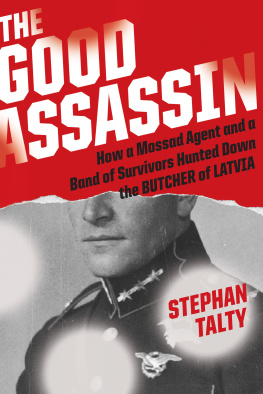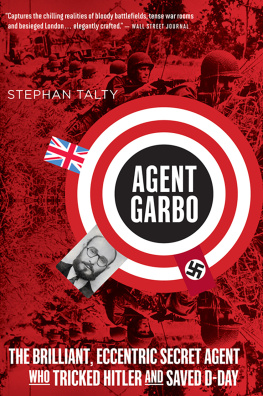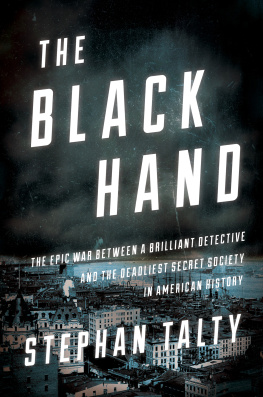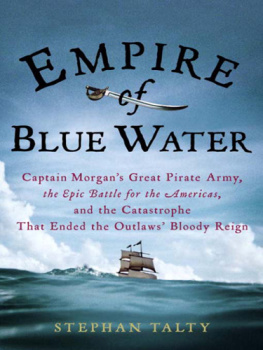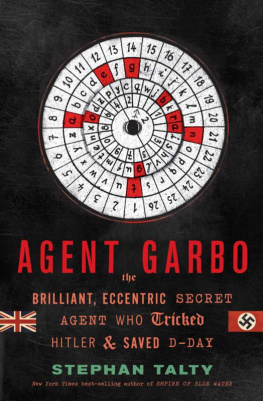
Courtesy of Texas State University
For Delphine,
my darling girl
Immense sadness everywhere; immense power.
JOHN JAY CHAPMAN
Contents
O N SUNDAY AFTERNOON , March 28, 1993, David Koresh was in a bitter mood. Dressed in a white wifebeater and jeans, he lay on the second floor of the Branch Davidian compound, his back propped against a wall, on the phone with the FBI. They had cut off the electricity, so the dark interior of the building was lit by candles, and quite cold.
The phone line snaked out of the compound, across land where FBI snipers studied the compound windows, and connected to a phone at a temporary headquarters a few miles away. There, a team of five negotiatorsprimary, secondary, technical adviser; note taker; and team leadersat in a minimally furnished room, listening and talking.
It was exactly one month into the siege at Waco, and Koresh felt the FBI was messing with his manhood. Theyd invaded his home, scoffed at his Bible teachings, and rutted the land around his home with their tanks. Agents had given him the finger and even pulled down their pants to moon his followers. He was fed up.
You boys are murderers, he said. You boys are killers. My country has dealt with me and people I love in a way thats not right... What youve done about it is youve disrespected my personage... Youve disrespected my religion.
The primary tried to calm him. Davids mood could turn easily, the FBI had found. At times, he seemed to want to befriend the negotiators, guys mostly in their thirties and forties. In his drawling voice, he even told them he loved them. David had an old-boy charm about him that could work on your mind. He wished he could meet up one day with the FBI agents, he said, have a beer or two. Maybe theyd ride their motorcycles around Lake Waco.
There were times when their talks seemed more like therapy than negotiations. Davids mind roamed back to his childhood in the small towns of North Texas, his family life, schooldays. He talked about what things might have been like if hed done something differently here or there. Maybe he could have been a true-blue American hero, like the FBIs own Eliot Ness.
DAVID : If the president of the United States had come to me one day and says, you know, Mr. Howell, I want you to work with the United States of America, youve been a good citizen. Ive seen your report cards... Youve been a good citizen and I want you to work on a tactical force with the FBI and I want you to help deal with, with bad guys and everything and Id like to give you this position...
Across the staticky phone line, his voice was warm.
I would have been so honored and so proud... , he went on, that somebody would have overlooked my apparent bad English and bad history. You know what I mean?
It was moving, in a way. The negotiators knew that David lied about things and made up stories about himself, but there were times when he seemed to lose his defenses and then he was remarkably human.
The negotiators encouraged him. Who knows, they said, you might beat the charges. Stranger things have happened. Just come on out, David, and youll see your life isnt over. More than thirty Davidians and their children had left the compound during the siege, with the last departing five days before. Loud music blared day and night, high-powered spotlights lit up the buildings faade, and the engines of Bradley vehicles growled and rumbled through the night.
Inevitably, the conversation would turn. Sometimes, the old memories called back old resentments. Let me explain something to you, David railed one night. You are taking me as a fool.
Absolutely untrue, the negotiator replied. But David went on in the same vein. He was certain the agents were lying to him. They were like IBM computers, each repeating the same words from the same script in remarkably similar voices. Inhuman men. David hinted that hed dealt with a long line of older dudes just like them that stretched back to his infancy. It was as if the voices of all the hard-asses that had tried to whip him into submission for three decades had been put on a tape that was being played back to him on a loop, over and over and over again.
You know, youre gonna be punished, he said to the agent. Your reasoning, your controlled oration, you know, your... unconcernment for the situation. Youre a cold heart. Youre just a freezer, you know what Im saying? Like I said, you know, you remind me of, like my dad, my stepdad...
You didnt say he was such a bad guy, though, the negotiator replied.
Oh, I told you, David said. I said we never really knew him... Oh, yeah, he was bad. He was a gangster.
E ARLY IN THE morning of August 17, 1959, Bonnie Clark got out of bed and hurried down to the bathroom of her parents house in Houston. Her stomach was giving her trouble.
She was just fourteen years old and nine months pregnant, her swollen belly on her slim frame noticeable enough to draw stares on the street. A pregnant teenager was still a topic of gossip in small-town Texas in the late fifties. Throughout her pregnancy, Bonnie had felt the judging eyes of others.
That night, the pain wouldnt let up. Bonnie went back and forth between her bed and the bathroom. Her mother called out to her from her bedroom.
Let me see whats wrong, she said.
Bonnie told her it was just a stomachache.
Her mother spoke from the dark room. Youre going to have that baby.
The two of them tried to wake Bonnies daddy, Vernon, to drive them to the hospital, but he was half-drunk from the night before and didnt want to go. Finally, they dragged him outside to the truck and got on the road to the hospital.
It might have been Vernon Clarks hangover that made him reluctant to leave his bed, but it might have been the baby, too. Bonnies family had been deeply hurt when she turned up pregnant. An already fractious relationship with her father had turned to acid.
For as long as shed been alive, Bonnies father had been a menacing presence in her life. The family never learned the origins of Clarks rage, but they had their suspicions. Hed endured a rough childhood. His father had passed away when he was eight, and his mother had taken up with a series of boyfriends, none of which seemed to have made any emotional connection with the young boy.
Clark had made it through high school and, in the wake of Pearl Harbor, joined the Army. After the war, he married Erline, who came from a more well-off family than his own, then led his growing clan through years of wandering East Texas in search of better prospects. He tried his hand at different jobs that rarely lasted long and sent the family shuffling through a series of rented houses all across the stateAtascosa, Houston, Little Elm.
Clark even tried farming. But he battled stiff headwinds as he tried to make a living for his family, which would eventually grow to seven children. In 1949, when Bonnie was just four, a severe drought struck Texas, cutting the amount of rainfall the state received by as much as half. Rivers dried up, topsoil turned to dust, and crop yields plummeted. Fifty percent of the states farming industry was wiped out, with a ripple effect on the remainder of the economy. Clark struggled to find stable financial footing.
There was, though, always money for alcohol. Over the years Clark turned into a snake-mean blackout drunk who beat Erline and tormented his children. Bonnies brother Gary ran away when he was twelve, on account of her father whipping on him. Another son joined the Navy at fifteen. For the Clark kids, home was nothing to brag on.


